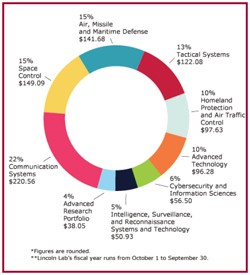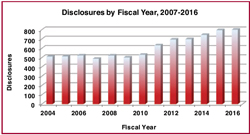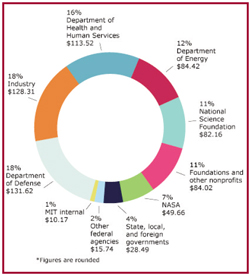
| Vol.
XXIX No.
5 May / June 2017 |
| contents |
| Printable Version |
Technology Licensing Office and You
It’s been nearly a year since I arrived at MIT from Urbana-Champaign, having spent a decade leading the technology transfer office at the University of Illinois’ beautiful flagship campus. The opportunity to come to MIT to provide strategic leadership in the area of technology transfer and intellectual property (IP) management was ideal for me and my family. My wife, our nine-year-old daughter and I are now settled into the Sudbury countryside. I am also beginning to find my feet in the Kendall Square environment. I thought it timely to share a little about myself and my vision of how the Technology Licensing Office (TLO) can support faculty and students alike in the work to amplify MIT’s global impact through the transfer of innovation from the lab to the marketplace. The TLO’s role in ensuring the efficient and effective transfer of MIT’s scientific discoveries to startups and established firms has never been more important than now.
In my 16 years at the University of Illinois, I learned what it takes to create an ecosystem to serve entrepreneurial faculty and students when you don’t have easy access to capital, mentoring, and the other resources necessary to build, sustain, and grow a vibrant innovation ecosystem. We did however, over the course of many years, manage to create a highly successful set of resources, facilities, and programs to support not only the University but also the surrounding community. I was also fortunate to participate, on behalf of Illinois as IP lead, in some significant university/industry partnerships. With that backdrop in mind, I’d like to share with you my perspective on the MIT TLO, its responsibilities to the MIT community, and the ways that I envision we will shape technology transfer operations in the future to enhance our services to you.
In case you are not familiar with the work of the TLO, our purpose, in keeping with MIT’s mission to advance knowledge, is to help identify, protect, market and license MIT’s intellectual property and assist its transfer into society for the public good.
The IP we manage may be patentable and/or copyrightable and may be jointly owned by other research or corporate entities. The TLO is also responsible for managing and licensing the MIT trademarks and use of MIT’s name by third parties. We assist faculty in the transfer of materials and tangible property from other institutions into MIT labs, as well as from MIT to corporate and other research organizations. We also work with faculty in finding the most appropriate open source licenses for distribution of software. Administratively, the TLO reports to the Associate Provost with a dotted line relationship to the Vice President for Research for the purpose of signing licenses.
The TLO has IP compliance responsibilities stemming from MIT’s and Lincoln Laboratory’s use of federal, state, corporate, or other funding, and we must appropriately manage any IP flowing from that research. However,our work also involves many additional activities.

(click on image to enlarge)
We are proud to be part of the vibrant MIT innovation ecosystem and support many world renowned entrepreneurial programs such as the Deshpande Center for Technological Innovation, Sandbox Innovation Fund Program, and the Venture Mentoring Service. The TLO’s goals also align closely with those of the MIT Innovation Initiative, as we work to move innovative ideas from conception to impact.
In addition, over 700 companies engage with faculty and students on projects at MIT, and licensing officers spend nearly half of their time working with the Office of Sponsored Programs (OSP) to negotiate IP terms and undertake the review of background IP for industry, and foundation sponsored contracts. We also work with the Industrial Liaison Program (ILP) to create and strengthen relationships between MIT and corporations. In recent months, the TLO, OSP, and ILP have been working closely together to identify more creative and flexible ways to engage with corporate sponsors. Our licensing officers also engage and provide IP related assistance to several Institute wide programs such as the MIT Energy Initiative, the Koch Institute, the Masdar Institute of Science and Technology Policy, and SMART (the Singapore-MIT Alliance for Research and Technology, that was MIT’s first research center outside Cambridge). More recently, the TLO was involved in finessing a new IP portfolio approach created for the novel public-private consortium Advanced Functional Fabrics for America (AFFOA), which was led by MIT.
Most typically, faculty, researchers, or students will come to the TLO (located at 255 Main Street, Kendall Square) to submit a new technology for consideration and ultimately for licensing to a third party that will invest further funding toward the development of the technology, which then can be sold to customers. Our focus is impact, not income, and revenue derived from licensing is shared with inventors, research units, and MIT, after patent and other operational costs are recovered.
Evolution of the TLO
Since July 2016, I have been talking with many stakeholders in the MIT community and working with the TLO staff to identify ways in which we can improve the support we provide to the MIT community. Given the volume of research funding at MIT and the resulting thrilling scientific discoveries, it will be no surprise to you that the TLO has seen a 40% increase in technology disclosures received in the last 10 years (see the table). In that same period, we have had over 2,000 U.S. patents issued, and signed 1,000 licenses and options to companies, including licenses to over 190 startup companies. Some of our licensees are located within walking distance of the MIT campus. Many startups are embedded in local incubators, and we hope future startup licensees will also be part of the newly launched Engine. Of MIT’s entire U.S. patent portfolio of 2,661 patents, over 50% are licensed, which is a very high proportion in comparison to our peers. (Both of these figures are of March 2017 and will change constantly based on new patents being issued each month and licenses executed.)

(click on image to enlarge)
Such success takes significant effort, and building on such success takes candid reflection on what has been working and what needs to be improved. Behind the direct engagement with faculty and students sits a very capable but stretched TLO administrative infrastructure. With your help over the course of the next few years, I would like to make some adjustments to both our internal operations and our engagement with the community we serve in order to ensure that we not only stay relevant but also evolve as the entire innovation economy evolves. The following are a few of the areas that we have already identified for improvement. I welcome your feedback on these and other areas.
- Increased transparency in decision making, and in sharing the rationale for legal and financial deal terms
- Improved communication, both in consistency and provision of materials about IP management
- Improved TLO Website (due to launch in July 2017), including a future inventor portal
- Increased visibility of the TLO as a resource for the MIT community through more systematic and easy to access/use educational offerings on IP related topics, such as videos, Web-based seminars and provision of data to faculty on their portfolios, market and IP landscape analysis
- Lower transactional costs, through investment in infrastructure, including a new IP database and improved financial systems
- Improved invention disclosure process and patent management to ensure high quality patents to enable commercialization
- Improved access to our technologies for potential licensees, including a more user friendly technology database and expanded ready to sign licenses.
We have already begun to take steps in some of these areas, but we also need the assistance of the MIT research community. For example, to improve our invention disclosure process and management of the patent portfolios we need to make some adjustments to our current procedures, such as reinforcing the need to have inventors submit their technologies well before they make a public disclosure and provide sufficient information for the licensing officer to ascertain, in consultation with the inventor, how and through whom the technology might be commercialized. To achieve this, we will be making some minor adjustments to our technology disclosure forms to gather additional information about the technology from inventors. We also need all MIT inventors to have completed an Invention and Proprietary Information Agreement. In addition, in the next six months, we will, following some improvements to the current beta system, be making a switch to an online-only technology disclosure process
The TLO has a vital role to play in moving MIT discoveries from idea to investment to impact. We rely on our relationship with faculty and the MIT community to be able to continue in this role. Whether through open source assistance, patenting and licensing work, copyright and trademark matters, transfer of materials, negotiation of IP terms in corporate sponsored research, or general guidance and information on IP matters (to name but a few), I hope that in the coming years the value that the TLO can add to the vibrant innovation environment at MIT will become even more apparent. I welcome your comments, not only about the efforts above, but also generally on your interactions with the TLO. Please feel free to contact me at lesleymn@mit.edu.
| Back to top | |
| Send your comments |
| home this issue archives editorial board contact us faculty website |
